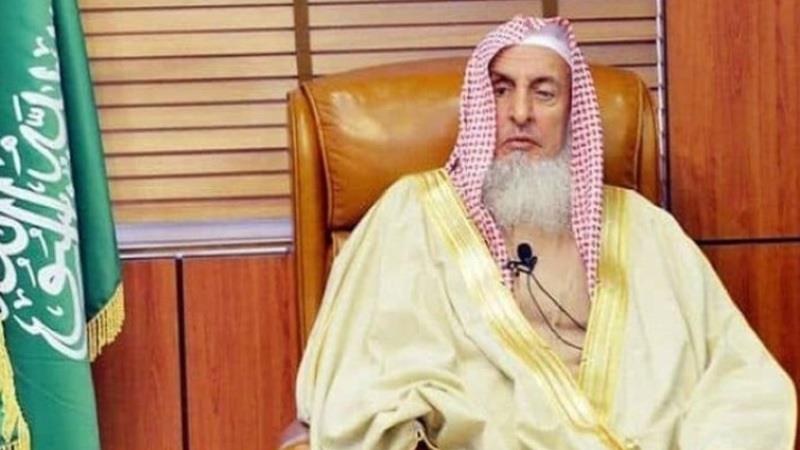Grand Mufti Al-Asheikh, Who Shaped Saudi Islam For Two Decades, Dies
Sheikh Abdulaziz Al Asheikh
Riyadh- Sheikh Abdulaziz Al Asheikh, Saudi Arabia's grand mufti and one of its most influential religious figures for more than two decades, has died, the Saudi royal court announced on Tuesday. He was believed to be in his early to mid-80s.
Appointed in 1999, Sheikh Abdulaziz served as the kingdom's top religious authority and head of the Council of Senior Scholars, the official body tasked with issuing religious edicts, or fatwas. His death marks the end of an era in which the clerical establishment played a central role in shaping Saudi religious and social life, even as its influence waned under Crown Prince Mohammed bin Salman's sweeping reforms.
The royal court described his death as“a loss for the Kingdom and the wider Islamic world,” praising his decades of service to Islam. Crown Prince Mohammed led funeral prayers for the cleric in Riyadh on Tuesday. His successor has not yet been named.
A Conservative Voice
Sheikh Abdulaziz was widely known for his staunchly conservative positions. Through a popular call-in radio program, he issued religious rulings that often attracted international attention. In 2004, he denounced the mingling of unveiled women and men at an economic forum as a source of“catastrophe and evil.” He also declared the game of chess to be“the work of Satan” and dismissed Twitter as a platform of“harm and evil.”
The mufti was no stranger to controversy abroad as well. He condemned Hamas, describing its actions in Gaza as“a disgrace to Islam” and“an act of blasphemy against Allah,” and ruled it religiously impermissible to support Hezbollah in its conflict with Israel.
From Influence to Decline
A descendant of Muhammad ibn Abd al-Wahhab, the 18th-century cleric whose teachings underpin the Saudi state's official religious doctrine, Sheikh Abdulaziz embodied the historic alliance between the Al-Saud royal family and the Al-Sheikh clerical lineage. His position, however, increasingly became institutional rather than independent.
While once the Council of Senior Scholars held sway across the Muslim world, its authority diminished sharply in recent years. Beginning in 2010, the Saudi state consolidated control over religious rulings, granting the council a monopoly on fatwas but ensuring its decisions aligned with government policy.
That alignment was most visible during the reign of Crown Prince Mohammed. As the prince pushed through sweeping social and cultural reforms under his Vision 2030 plan, the grand mufti provided religious legitimacy. He supported landmark decisions such as lifting the ban on women driving in 2017, curbing the once-feared religious police, and softening positions on gender mixing in public spaces.
Despite holding the kingdom's highest clerical office, Sheikh Abdulaziz's influence over daily life receded as the state dismantled the powers and budgets of the religious establishment. Observers say his fatwas became closely tied to political priorities, reflecting loyalty to the crown prince rather than clerical independence.
A Kingdom Transformed
For decades, figures like Sheikh Abdulaziz helped define Saudi Arabia's religious and cultural order. But in recent years, that order has shifted dramatically.

Legal Disclaimer:
MENAFN provides the
information “as is” without warranty of any kind. We do not accept
any responsibility or liability for the accuracy, content, images,
videos, licenses, completeness, legality, or reliability of the information
contained in this article. If you have any complaints or copyright
issues related to this article, kindly contact the provider above.
Most popular stories
Market Research

- New Cryptocurrency Mutuum Finance (MUTM) Raises $15.8M As Phase 6 Reaches 40%
- Bydfi Joins Korea Blockchain Week 2025 (KBW2025): Deepening Web3 Engagement
- Yield Basis Nears Mainnet Launch As Curve DAO Votes On Crvusd Proposal
- 0G Labs Launches Aristotle Mainnet With Largest Day-One Ecosystem For Decentralized AI
- Ethereum-Based Defi Crypto Mutuum Finance (MUTM) Raises Over $16 Million With More Than 720M Tokens Sold
- Fintech's Gender Gap In Focus: Drofa Comms' Women Leading The Way Joins Evolvh3r's She Connects At TOKEN2049






















Comments
No comment